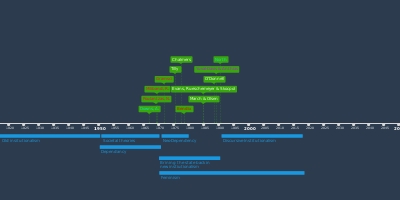9 июн 2006 г. - Acemoglu & Robinson
Описание:
Develops a game theoretic model about why different countries experienced such different paths of political development over the course of history? Key on what determines evolution of political institutions- as these institutions play the role of regulating the future allocations of political power. Political institutions act as commitment devices in the dynamic context. The authors argue that political power consists of de jure (where legitimacy is guaranteed by political institutions) and de facto power (originates from less formal sources like paramilitary forces or economic wealth). Ruling groups tend to choose institutions that will grant as much de jure power as possible- meaning political institutions are basically durable. But if they are durable, the authors explain political regime changes as based on the balance between de jure and de facto power. De facto power is transitory in nature, making elites promises on future policies not credible. Once citizens lose their de facto power, threat of revolution is gone so elites renege on their promises. Elites are faced with a commitment problem precisely because they hold more durable de jure power. Under the circumstances, they resort to democratization to avert revolution.
Добавлено на ленту времени:

Comparative Politics Comp
Дата:
